A conversation with the woman behind the only restaurant with Lebanese food in Ljubljana
I’m a Trubarejva cesta partisan, decidedly on the side of this short street in downtown Ljubljana that still manages a mix of high and low, rich and poor. It starts in Prešeren Square with the fashion labels of Emporium, and ends with the graffiti-covered squat of Tovarana Rog. Most of the businesses are run by the owner / managers, and the diversity seen in its food offerings – European, African, Asian and Middle Eastern – is reflected in the people who live, work and play there.
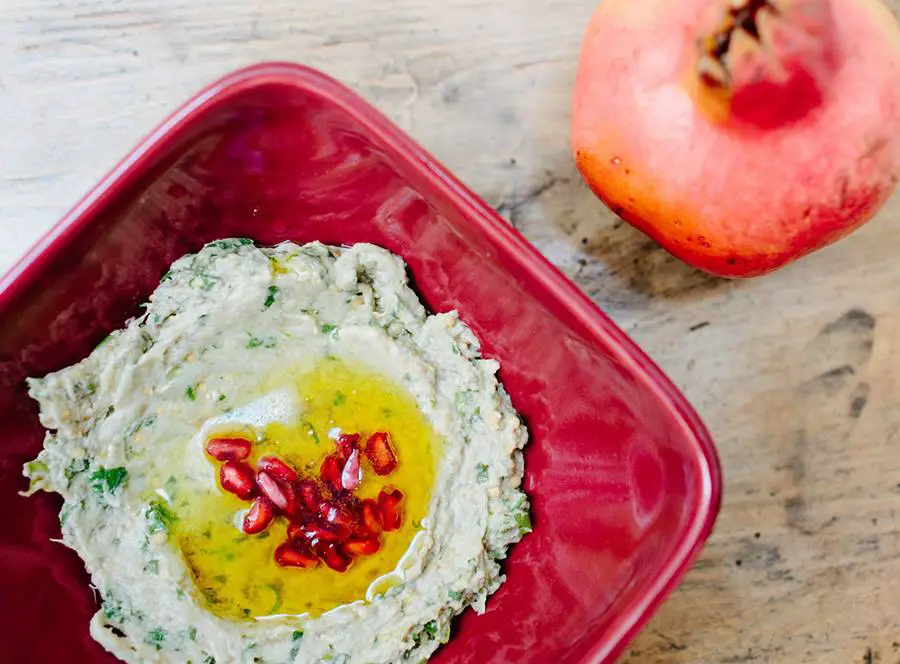
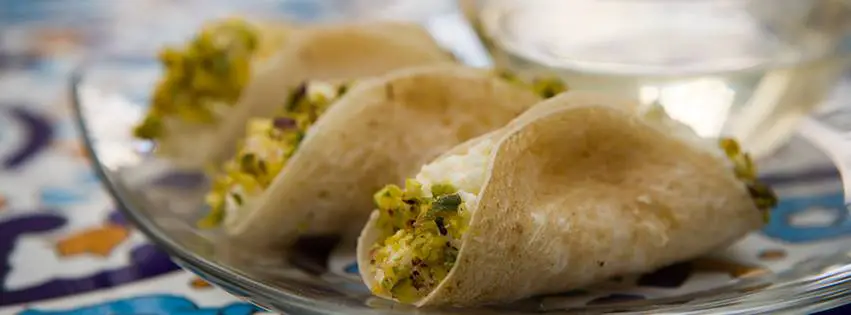
Having moved here after two decades in Asia I love the colour and activity of this street, the grassroots entrepreneurialism and its multi-racial, multi-ethnic character. For me, it’s a model of what a more vibrant Slovenia could be if it looked to the future and took the opportunities that seem to be left on the table for a more interesting, brighter and open life.
The subject of this edition of Meet the People is someone who exemplifies all of the good qualities I see here, and who has turned them into a successful business. It’s Alja Hafner Taha, who runs Libanonske meze in drugi užitki (Lebanese meze and other delights), a very popular restaurant that’s slightly hidden away in a basement, between a building that houses a sex store and another that offers marijuana growing supplies. Walking through the door and down the few steps feels like you’re moving down into another world, an effect aided by the décor, music and – of course – the aromas of a Middle Eastern kitchen, which you’ll have to imagine as you look at the pictures and read my interview with Alja…
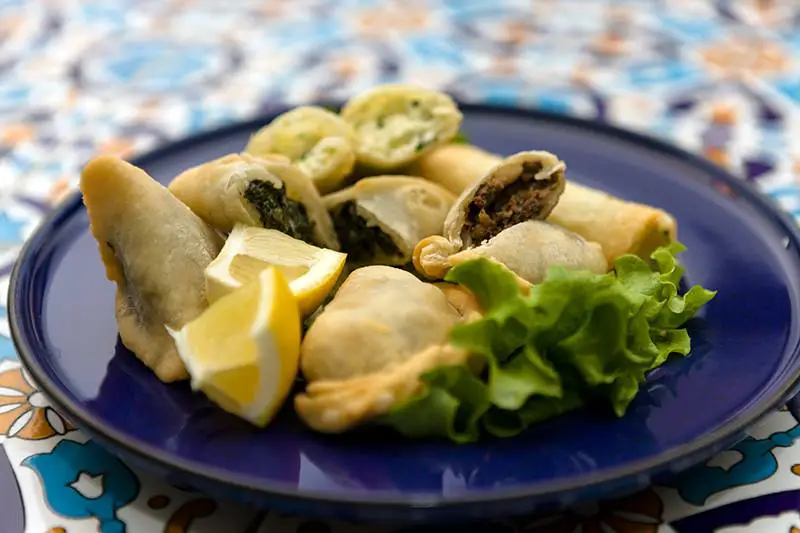
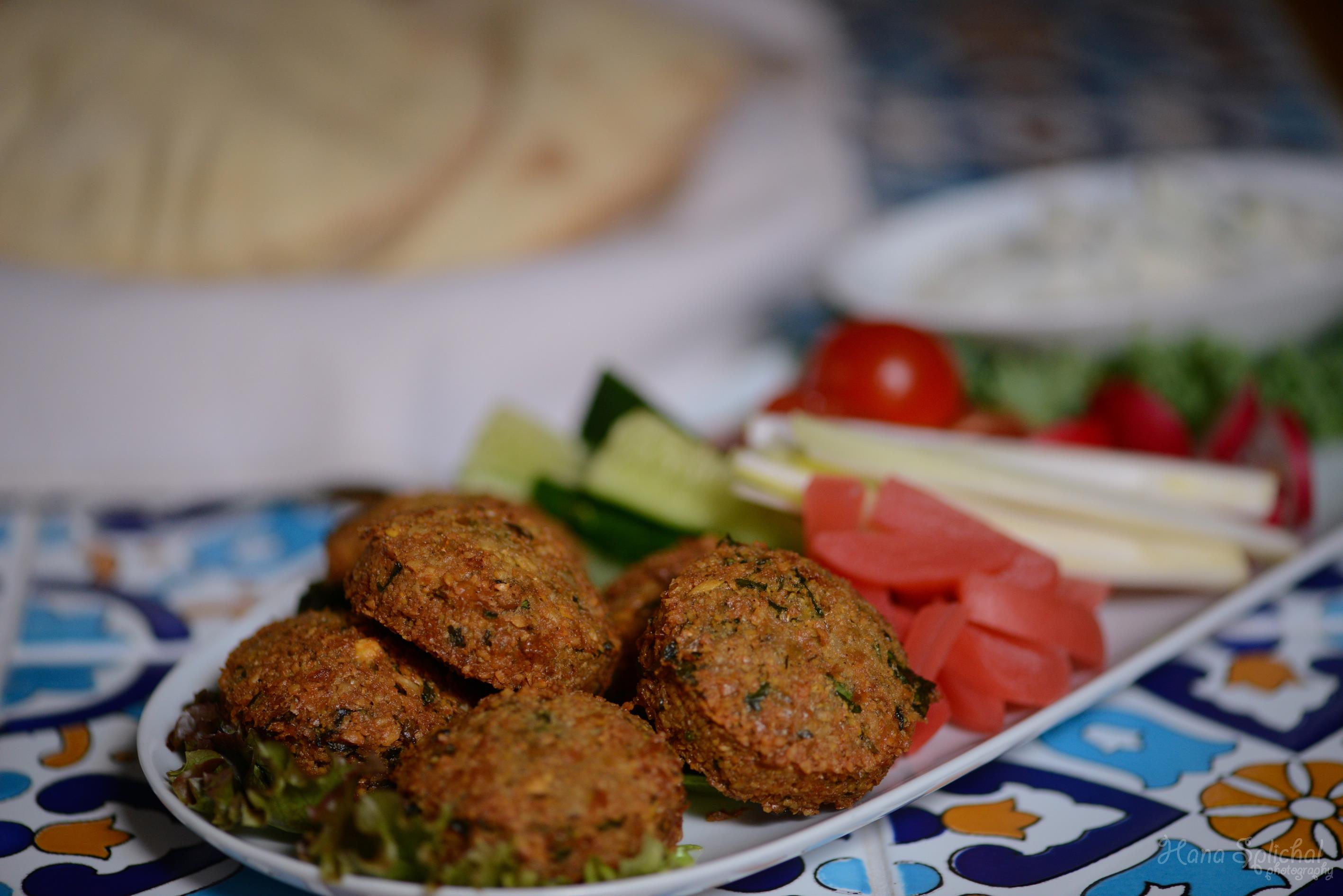
What’s your background?
My father is from Palestine, and he came here to study mechanical engineering in the 60s, then fell in love with a blonde, green-eyed Slovene, my mom, a Slovenian from Trieste.
A couple of years after I was born we left the country, and my dad was an engineer for various foreign companies in Arabic countries, and so for the next decade or so our lives revolved around his work. We started in Algeria, then Iraq, England, then Italy, then to Jordan, and then back here.
I went to eight schools in 11 years,. It’s hard to keep track of it all, but I went to English, French, Italian schools, although in an Arabic environment. I didn’t go to any Arabic school, but my father made sure his children had private lessons in the language.
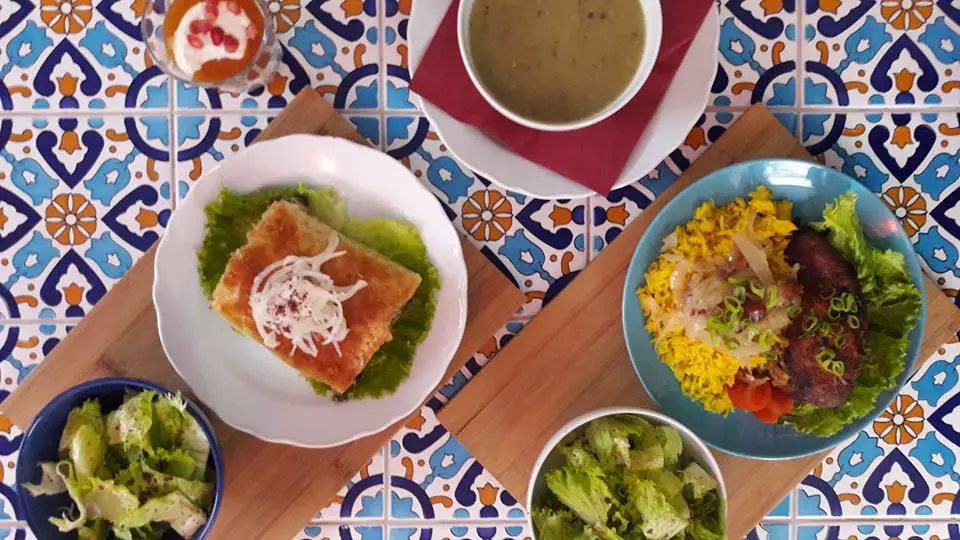
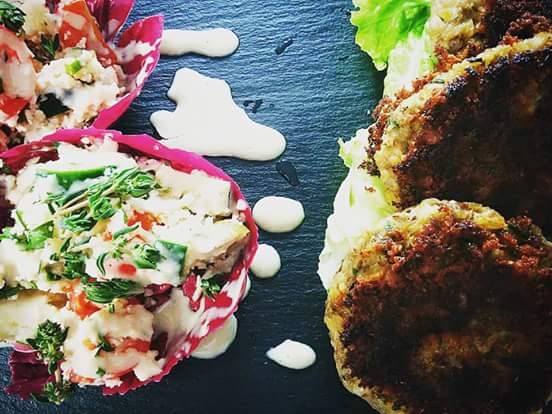
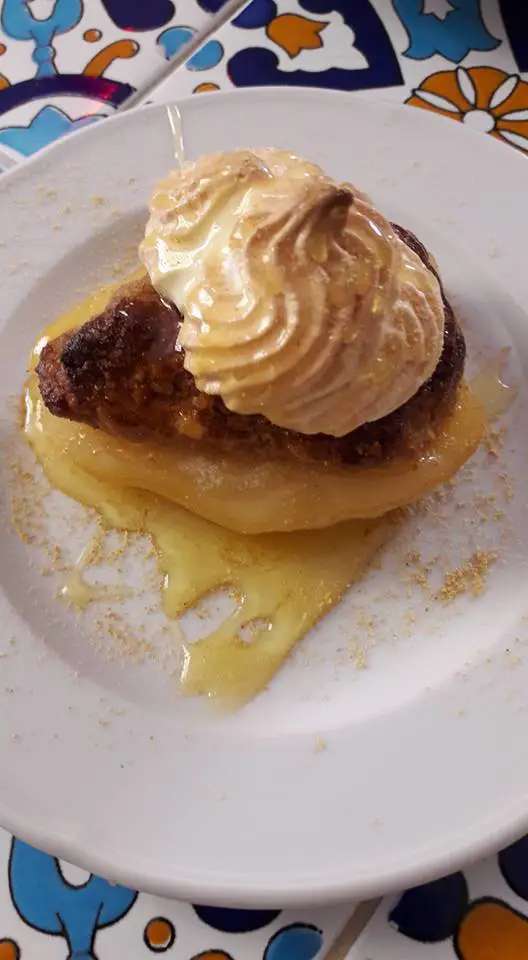
What language did you use at home?
At home I used to speak Slovene with my mom, Arabic with my dad, but since both of them spoke Slovene I eventually switched to that with my father.
How did you end up back in Slovenia?
I studied in Venice, then in the States. When I finished there I got an offer of an internship in America. Now I liked the university system in America - in Italy it was ridiculous, you were left to your own devices, and if you lacked discipline then it just dragged on forever, like in Slovenia –, but I really wanted to come back here for the lifestyle and the culture, which in the States I really didn’t like, and I did that in ‘97
I spent the first couple of years in Koper, then I moved to Ljubljana and worked in marketing, specifically in advertising.
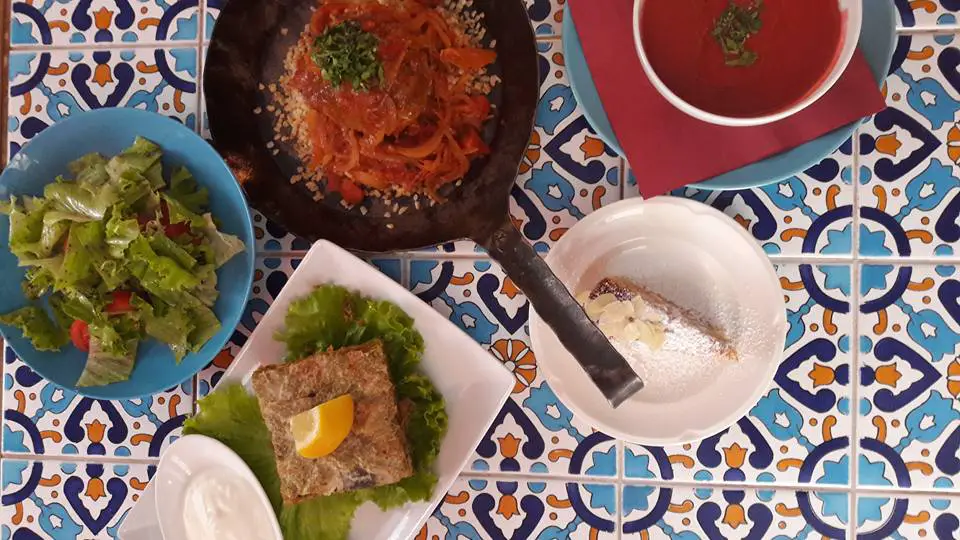
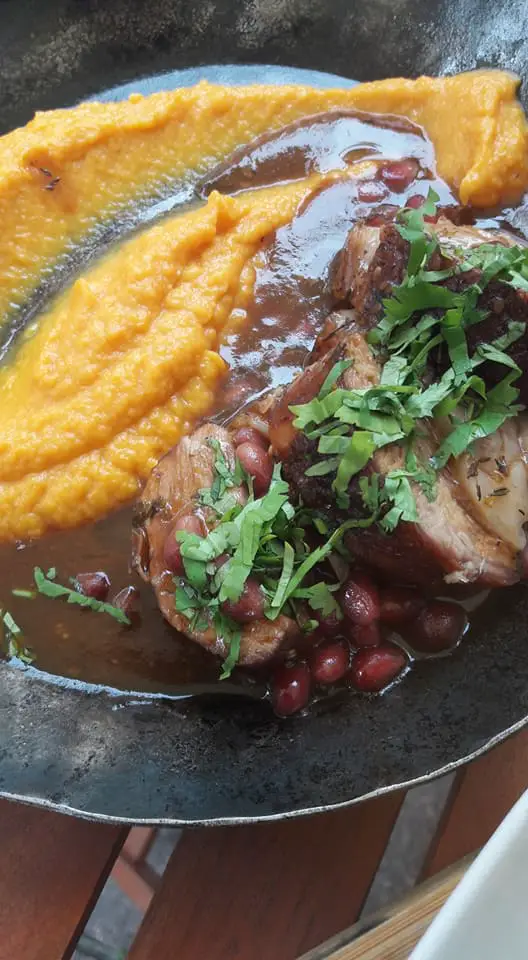
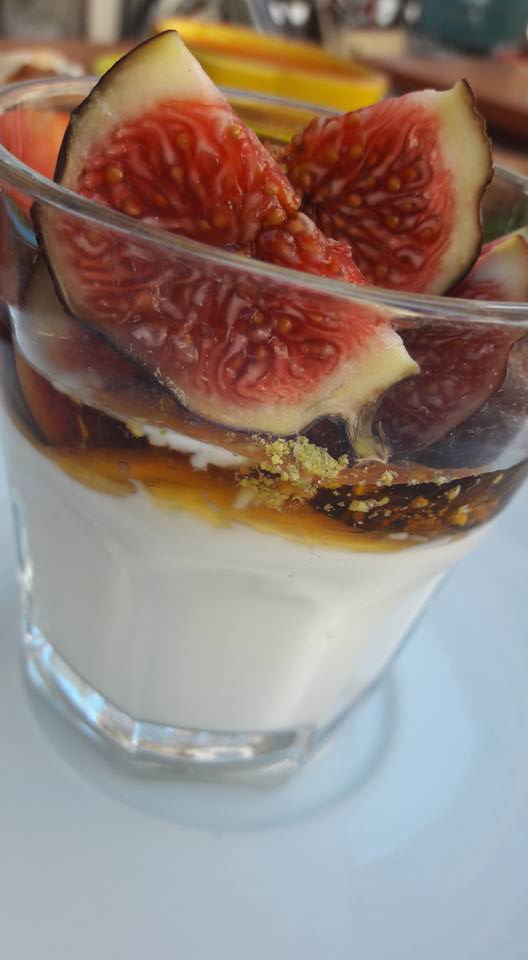
Did your international experience help with that?
I don’t know. The industry in Slovenia is as good as anywhere in Europe, so perhaps not, but certainly my background helped me be more flexible, adaptable, less surprised by things.
So how did you make the move to running a restaurant?
Well, I had a good career, but I wanted a change, and food – the hospitality part if it – was the thing I really felt a passion for. This is something from my upbringing, we always had a full house.
My mother was a great cook, so was my father. When we lived abroad our home was like a hub for dinner parties, garden parties, and I loved it, the whole thing, the preparation and so on, was very fulfilling, emotionally. It was also very eclectic, because we had my mother’s cooking, my father’s cooking, my mother cooking my father’s food, and vice versa, plus all the dishes we picked up on our travels.
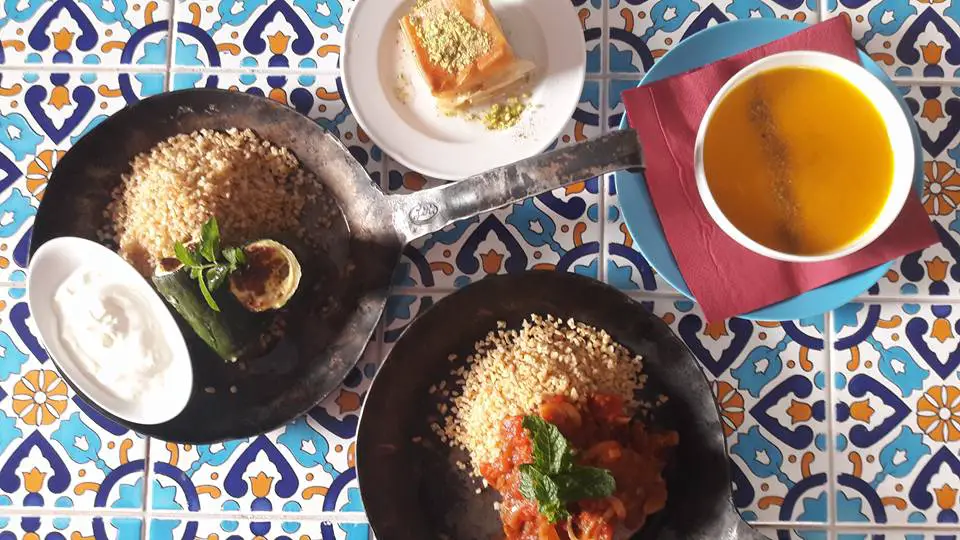
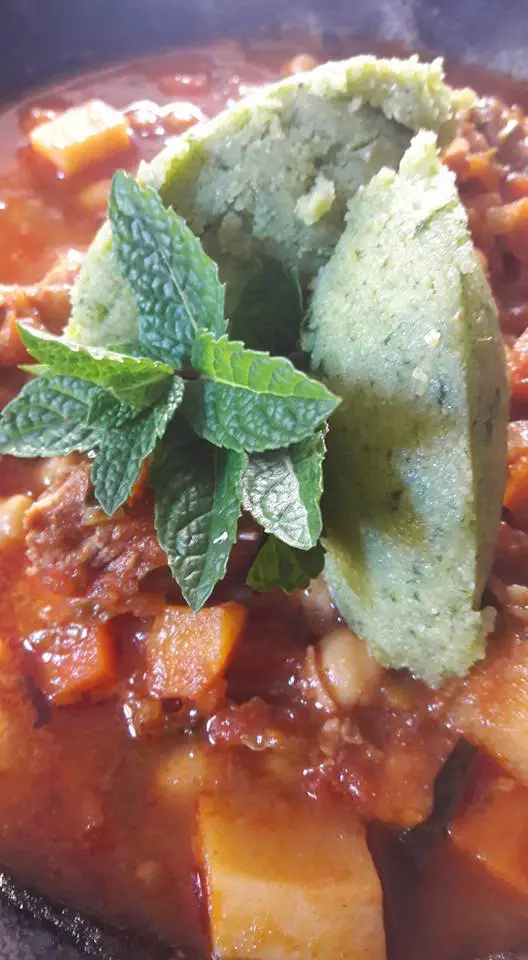
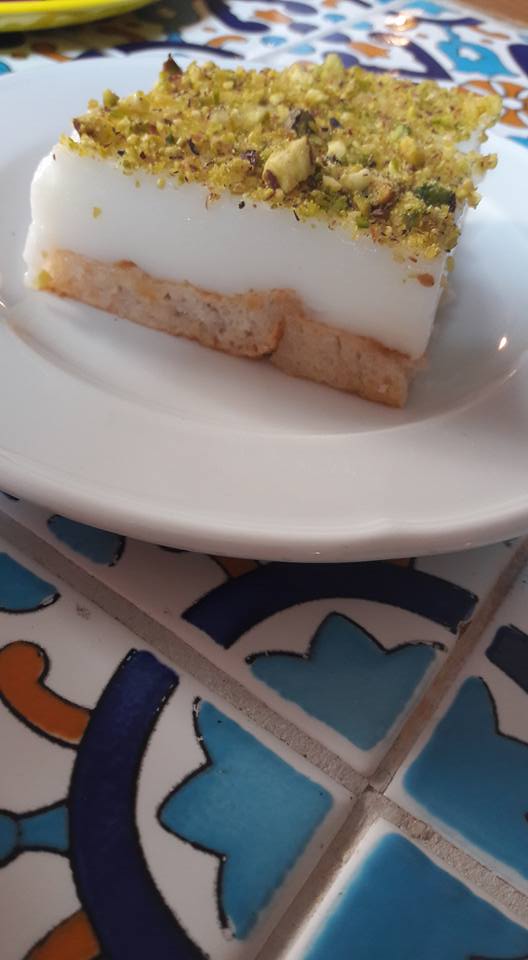
What about your cooking?
I didn’t really start cooking and enjoying it until my mid-20s, but then I really got into it. I’d have, say, 50 people over at my place.
Is it easier to do that with Middle Eastern food?
No, Slovene food’s actually easier to cook for big groups. The food that I cooked then, like the food we cook here, takes a lot of preparation, which is true for most Middle Eastern food. For example, the restaurant opens at 11:30, but work in the kitchen starts at 07:00, because we make nearly everything fresh here, including the pitta bread, every day. We don’t have a lot of space, we don’t have huge refrigerators and freezers to make it all days in advance. We make everything fresh every day, apart from harissa (a chili paste) and makdous, which is small pickled eggplants with walnut, and those are Lebanese, which we get from Vienna.
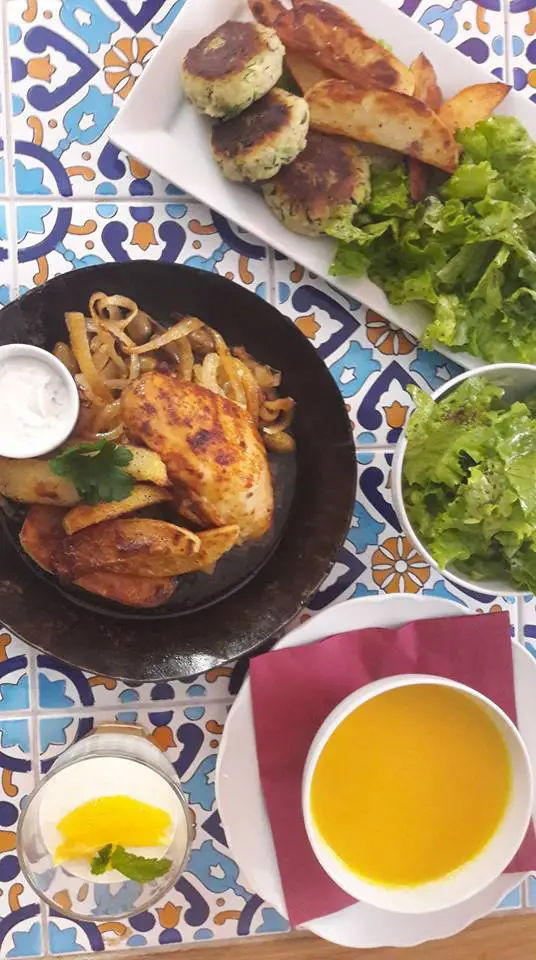
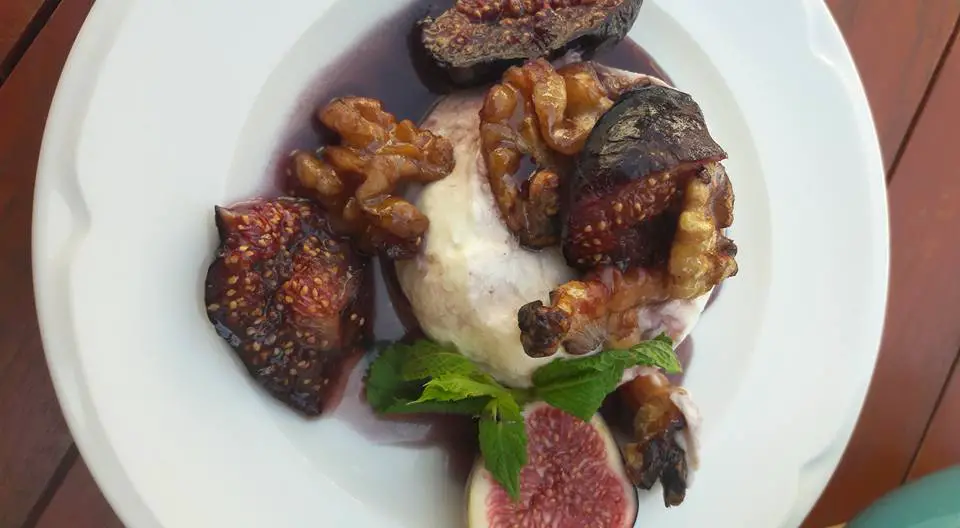
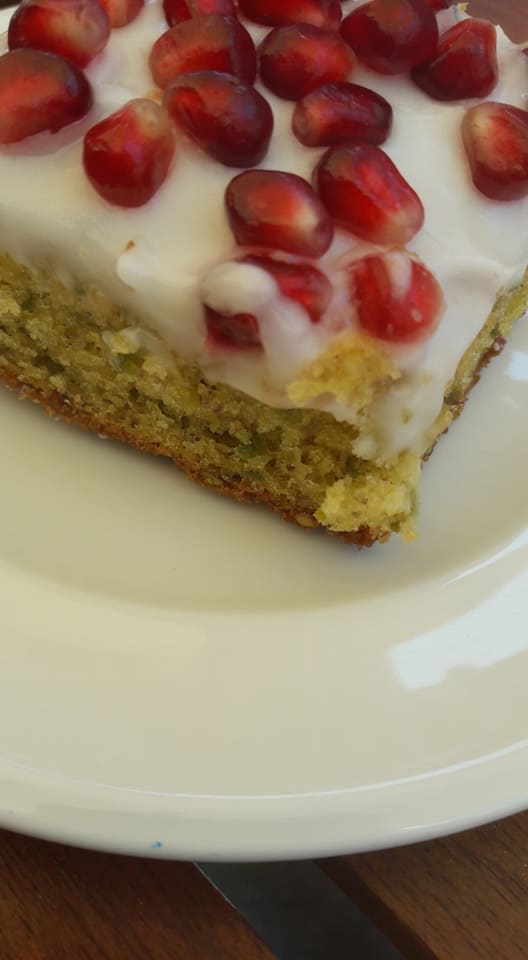
Is sourcing ingredients difficult?
At first it was difficult, but now it’s easy because we have all our contacts. If you want to make it at home you can buy the same stuff in Ljubljana, but if you’re a restaurant you need to get it closer to the source, and get it cheaper. For our vegetables and meat we get those from the market. We have a small scale butcher so we know where it comes from. For things like tahini, makdous, beer and wine we have a Lebanese importer in Vienna.
Authentic Lebanese food in Ljubljana
Do you make many changes to suit local tastes, or is this authentic Lebanese food in Ljubljana?
Being authentic is important to us, but the name Lebanese Meze & Other Delights means we have some room for food that’s not from the Levant. That said, the only things we had to adapt were the level of sourness in some dishes and the amount of garlic, which are both a lot higher in Lebanon. But if we get Lebanese guests we make sure they have a plate of lemons, or if, say, we have Palestinians we put some olive oil on the table.
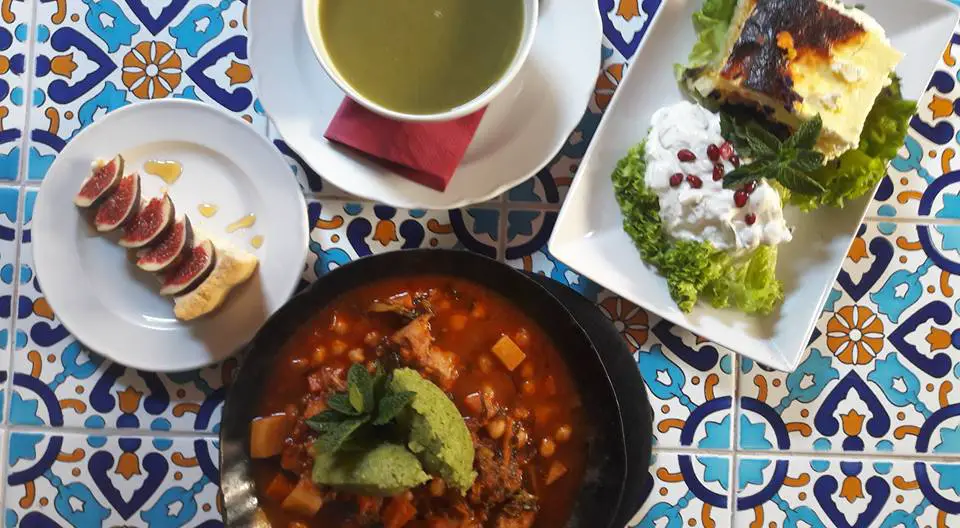
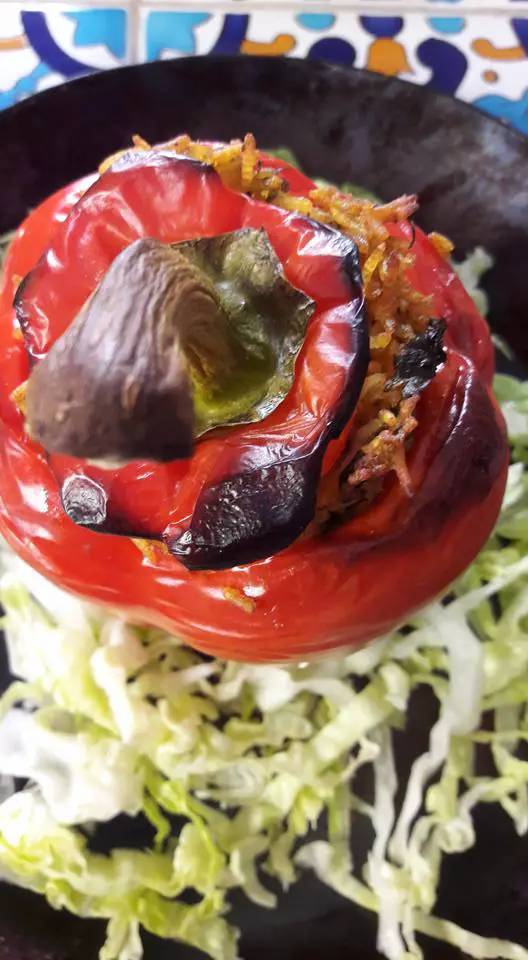
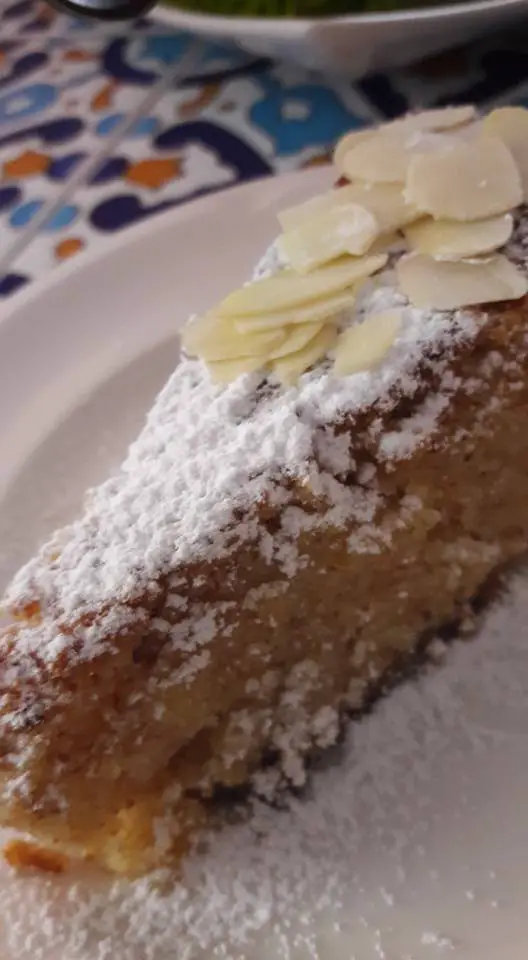
And has the menu changed much over the years?
The menu changes a little with the seasons, but in general it stays the same. Because I’d experimented with this food on friends for years beforehand, I was pretty confident about the dishes were going to have, so I had a strong vision, which is one we still follow.
Did your background in advertising come in useful?
One thing I learned in marketing was that the worst thing you can do is panic and make big changes in direction or the basic concept, plus my background in events management transferred pretty well to the restaurant business. That’s not say it was easy, because I had a lot to learn, but when there were problems or challenges I either had the skills needed to deal with them, or knew people who could help.
But the main problem in running a successful restaurant isn’t anything big, it’s consistency, its doing things extremely well day in day out. And that’s all in the details, not just the food but the way it’s served, the way the place looks, the music that’s played, the cleanliness, the energy that permeates the whole team.
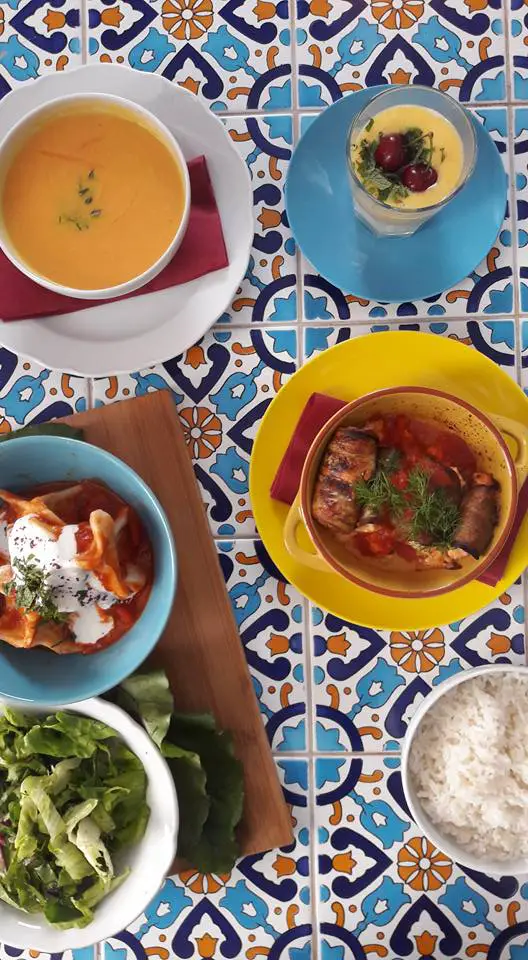
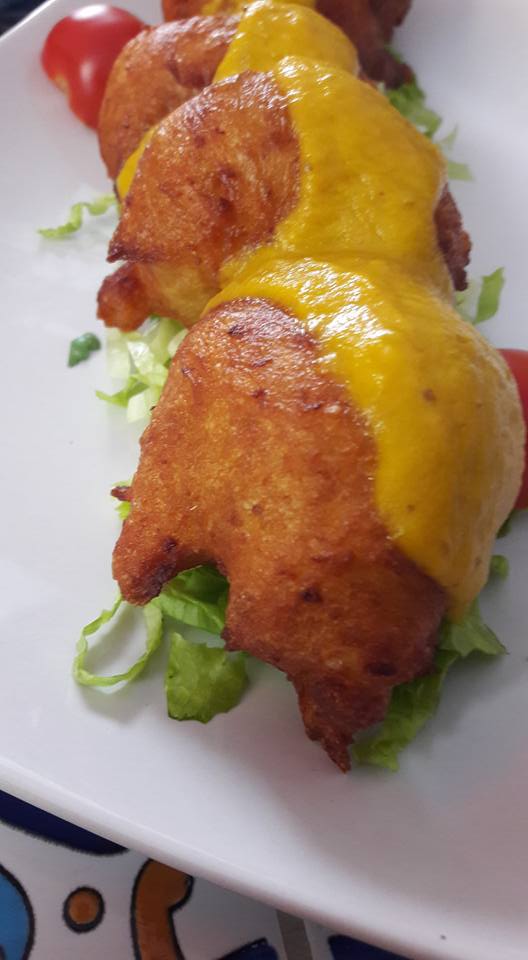
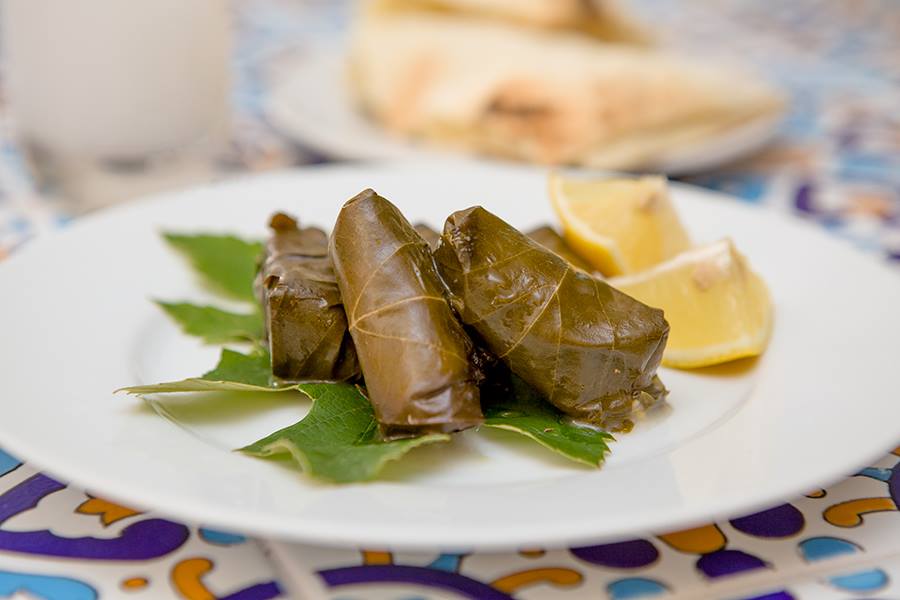
What about the staff here?
We’ve been very lucky with our team. At first we looked at bringing in a cook from abroad, but that involves a lot of paperwork, and is quite risky, because maybe they come here, you help set up a new life, and then they don’t like it. So we got a local guy, a great chef, Matjaž , who’s been here since day one. He manages a staff of Middle Eastern cooks, and the rest of the staff have all been the same for the last year and a half, so they really know what they’re doing. I help out sometimes, when needed, but managing a restaurant and cooking there too is the way to madness, it’s impossible.
Do you have any changes to the menu planned for winter?
Yes, we always change it a little with the seasons, with some heartier food in the winter, but not too much, as there’s always a danger you end up disappointing regulars, which we have a lot of, because you’ve taken a favourite off the menu. Like I said before, quality is paramount, but consistency is the key to success here.
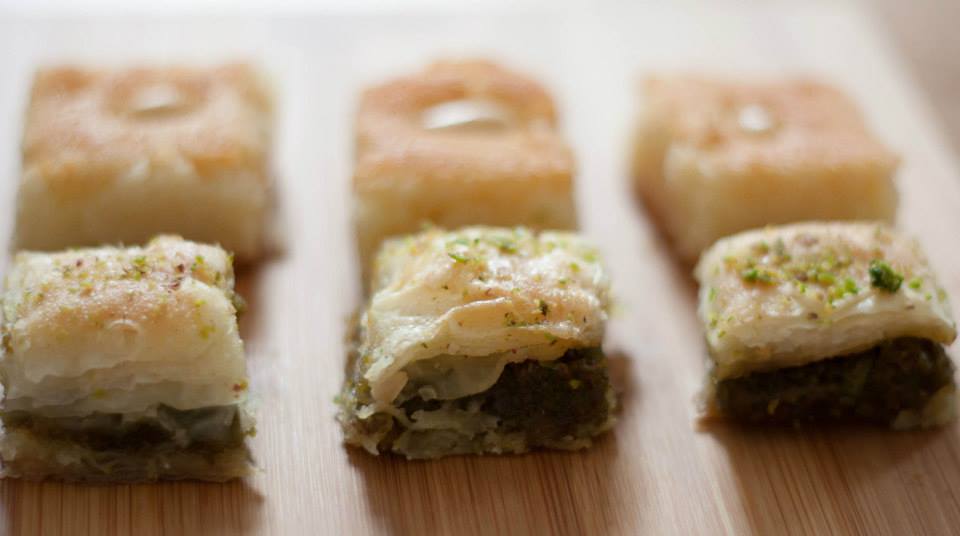
If you’d like to try some of the Lebanese food shown here, which is highly recommended, then you can find Libanonske meze in drugi užitki at 45 Trubarjeva cesta, Ljubljana 1000. The opening hours are Opening hours: Tuesday - Thursday: 11:30 - 22:00; Friday, Saturday: 11:30 - 23:00; Sunday, Monday: Closed. The website is here, while the Facebook is here.



